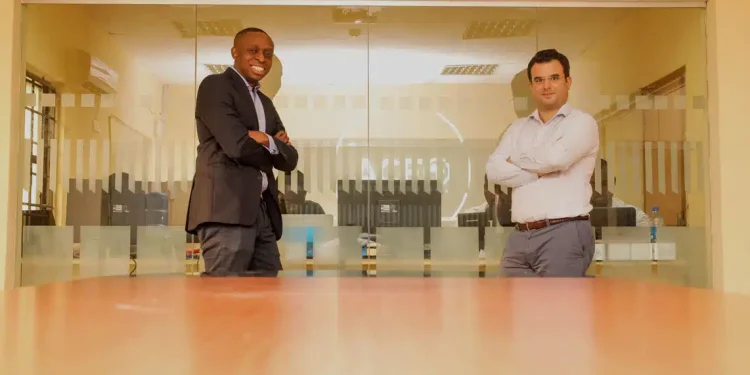Nigerian digital lender Lidya has shut down operations after admitting to “severe financial distress.” In an email to customers dated October 2025, the company said it could no longer continue in business, leaving several users unable to access their funds. The closure ends nearly a decade of activity for the once-promising fintech, which raised US $16.45 million between 2017 and 2021 to expand SME lending across Nigeria and other African markets.
Founded in 2016 by Tunde Kehinde and Ercin Eksin, both former Jumia executives, Lidya entered Nigeria’s fintech scene with a bold promise: to bridge the credit gap for small businesses often ignored by banks. Kehinde had previously co-founded ACE Logistics and Jumia Nigeria, while Eksin brought operational experience from Jumia Africa and McKinsey. Their shared goal was to build a data-driven lending platform that could scale across Africa and Eastern Europe.
By 2018, Lidya had expanded into Ghana and Poland, processing thousands of SME loan applications. But as loan defaults grew and investor patience thinned, the same rapid growth that once defined the company became its biggest pressure point.
Lidya’s sudden exit is more than another startup failure. It marks a clear signal of Africa’s shifting credit environment, where the cost of lending has risen and investor appetite for unprofitable fintech models is fading.
How Africa’s Digital Lenders Hit a Wall
Lidya built its reputation on offering quick working-capital loans to small and medium-sized businesses through automated risk scoring. The model offered speed where traditional banks required collateral and lengthy paperwork. For a while, it worked. Then inflation surged, default rates climbed, and global venture funding began to retreat.
By 2023, many digital lenders in Nigeria and Kenya were already cutting exposure. Carbon slowed its consumer-loan rollouts, while FairMoney turned its attention to full-service banking. Regulators, including Nigeria’s CBN and Kenya’s CBK, began tightening capital requirements and enforcing transparency. In that climate, Lidya’s balance sheet built on short-term, high-risk loans became harder to maintain.
What Lidya’s Fall Reveals About the Fintech Funding Cycle
Lidya’s collapse underscores a turning point investors have been signalling for nearly two years. The “growth at all costs” era of African fintech is ending. In its place, investors want clear paths to profitability and tighter risk controls. Reports from Partech Africa and other venture monitors show that overall funding has slowed, with investors increasingly favouring fintechs focused on sustainable margins rather than rapid expansion.
The same dynamic has appeared in Asia and Latin America, where once-booming credit platforms are facing similar pressures. As global interest rates rose, venture capital became more selective, leaving companies like Lidya struggling to extend their runway. For users, this shift exposes how fragile consumer protection still is. When a digital lender shuts down, there are few safety nets for borrowers or depositors.
Silence, Shock, and Lessons Learned
The shutdown notice arrived quietly by email. There was no press release, no official information, just a brief message informing customers that Lidya could no longer meet its financial obligations. Some users said their withdrawals had been pending for months, while others shared screenshots of unanswered support tickets. Reactions on social media ranged from disbelief to frustration.
Investors have yet to issue public statements. Accion Venture Lab, Omidyar Network, and Alitheia Capital, all early backers, still list Lidya in their portfolios but have not updated their websites. Industry peers are watching closely as regulators tighten oversight of online lenders, signalling more scrutiny ahead.
A Shift Toward Sustainable Finance
Lidya’s story isn’t just about one company’s collapse. It reflects a maturing fintech ecosystem learning that scale without sustainability rarely endures. The next phase of Africa’s fintech journey will reward firms that blend technology with sound financial discipline and a deep understanding of local markets.
Emerging-market lending offers opportunity but also volatility. Africa’s next generation of fintechs will have to focus less on fundraising and more on trust, transparency, and long-term value for the customers they serve.
















